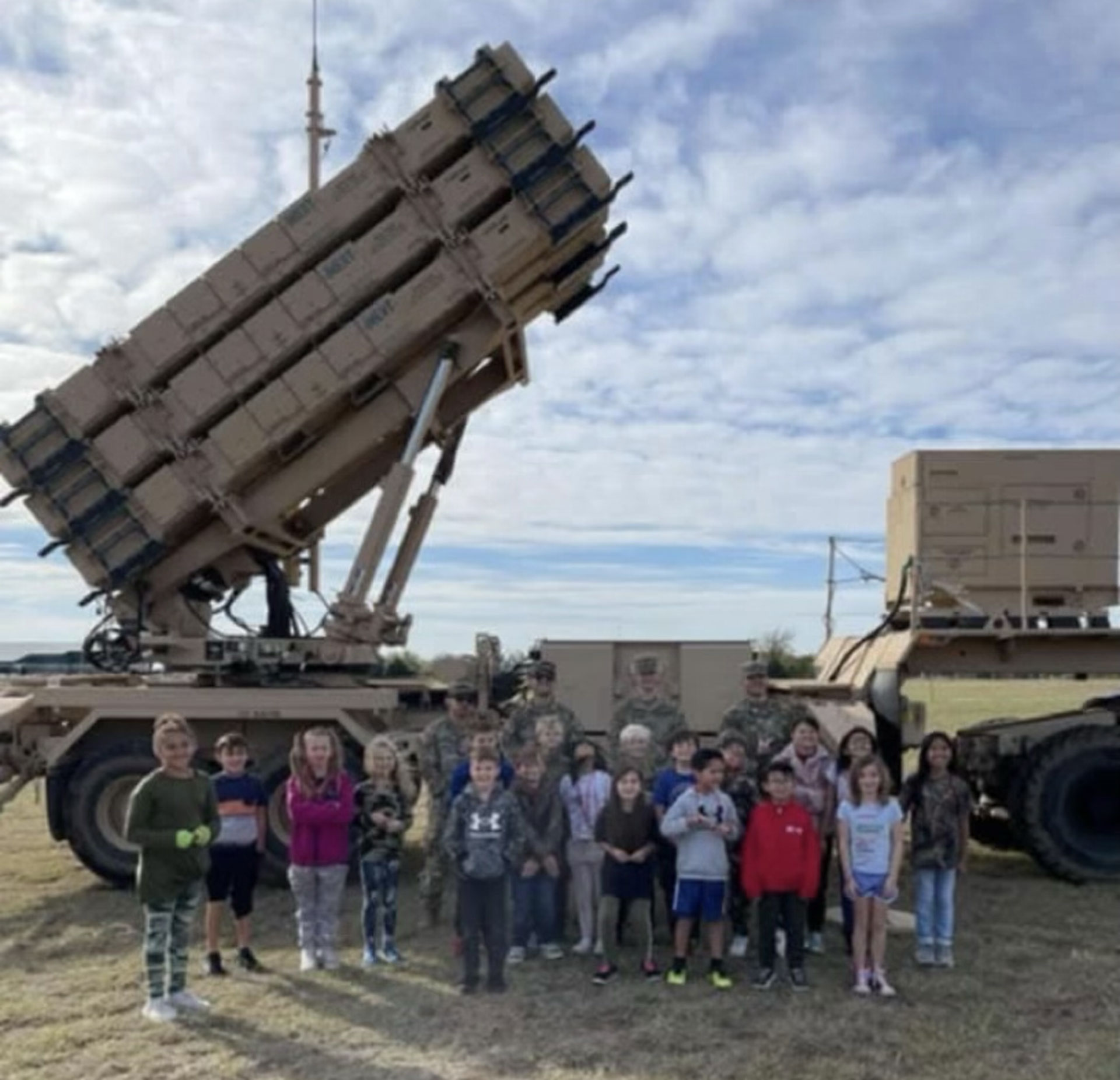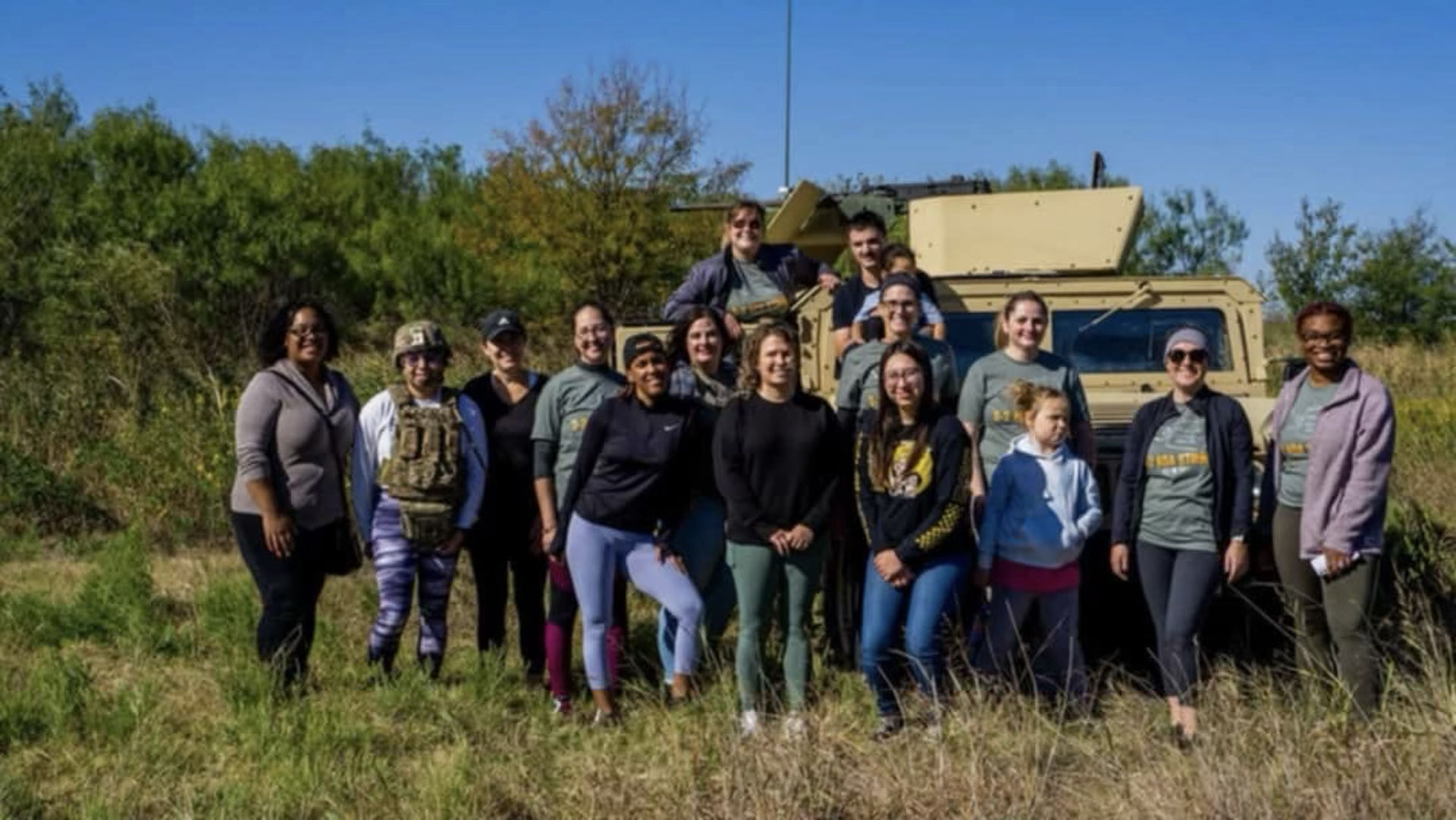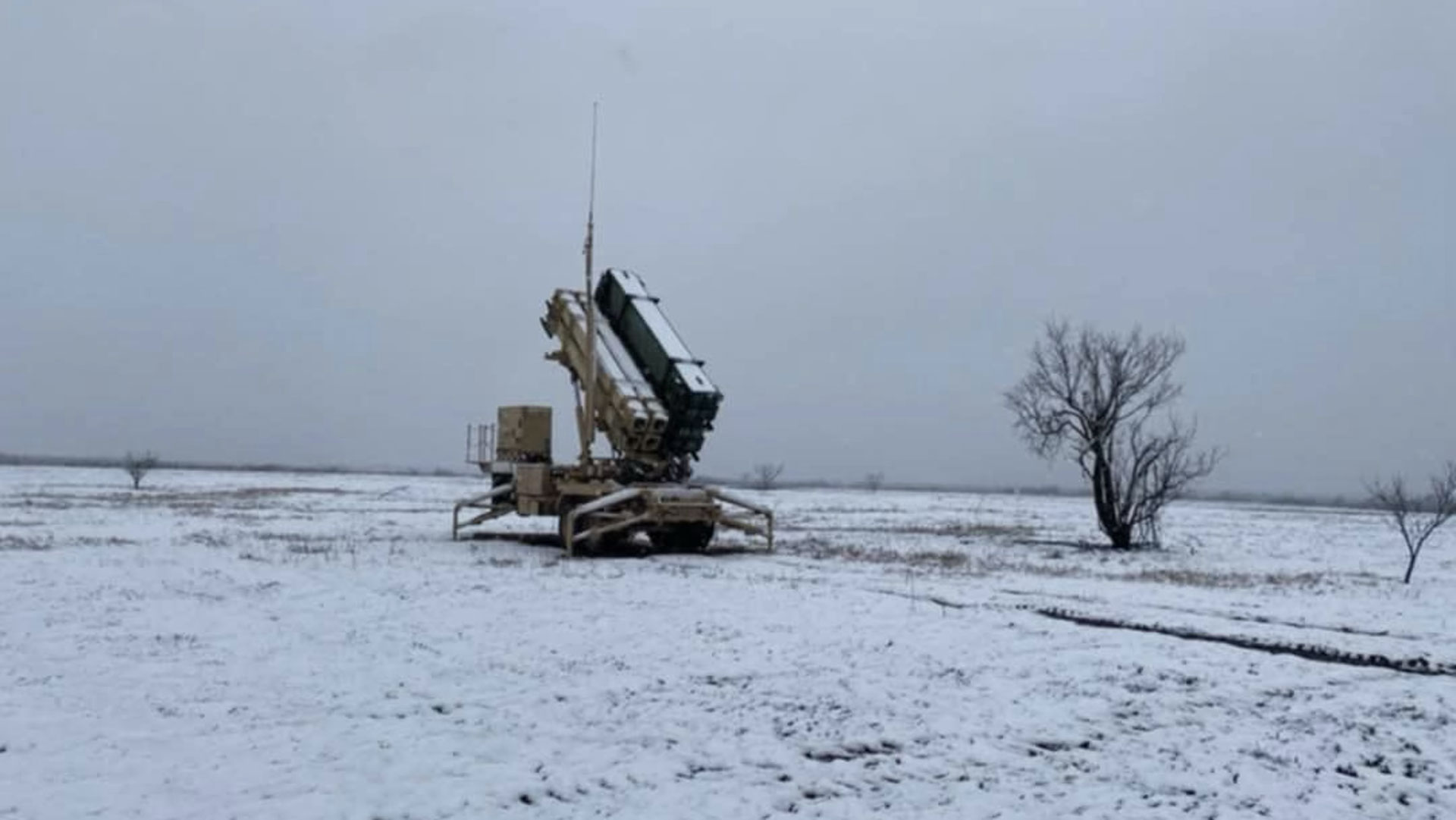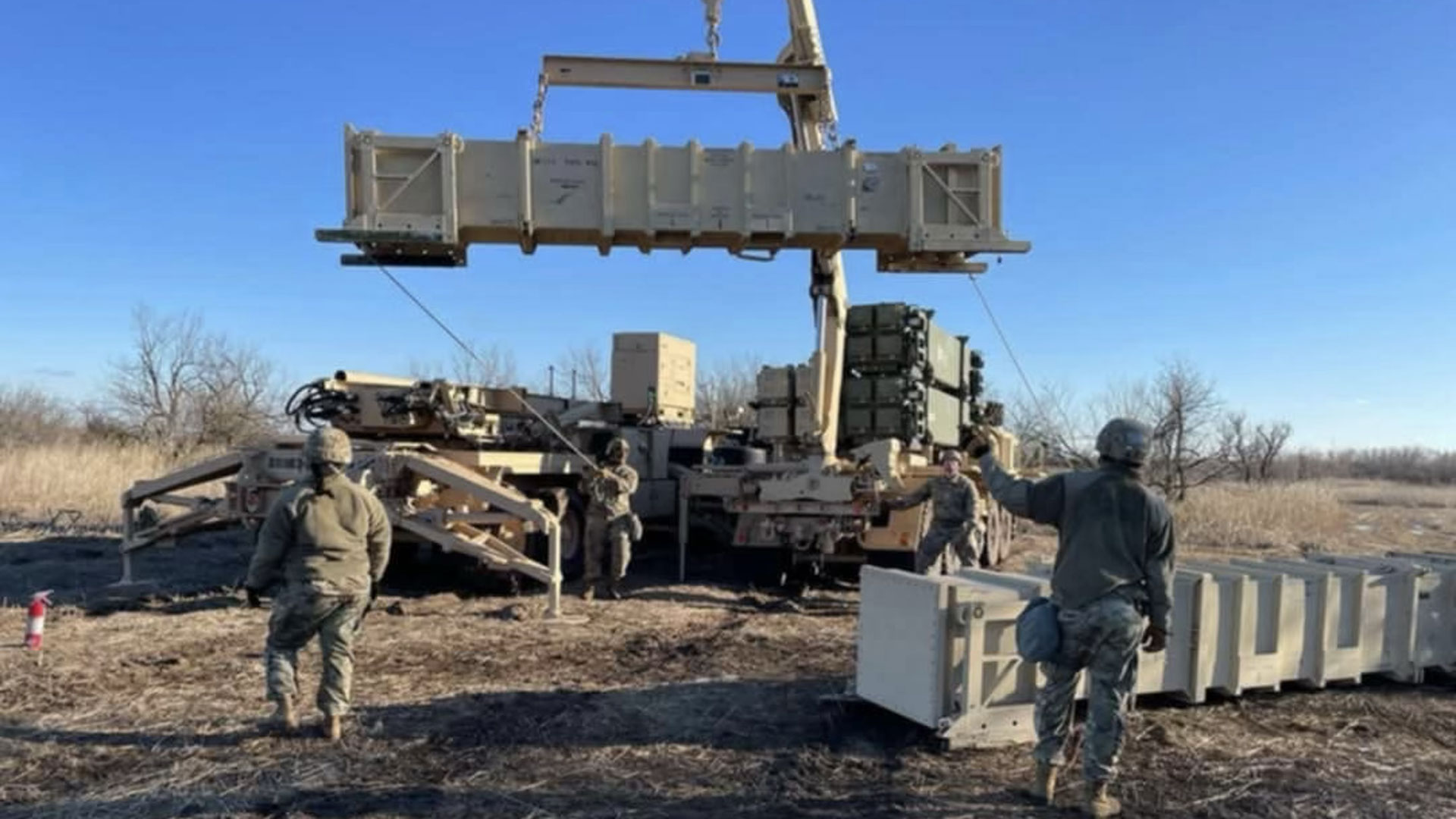Lessons in Battalion Command
Leadership, Readiness, and Legacy
By LTC Christopher T. Majors
Article published on: April 1, 2025 in Air Defense Artillery Bulletin 2025 E-Edition
Read Time: < 9 mins

Lethal Strike Soldiers conducting its annual Equipment Roadshow with Cache Elementary School Students
Whether in garrison or a forward-deployed area of operations, a Battalion Commander’s ability to provide shared purpose, decisive leadership, and a well-structured organization remains essential for guiding teams to success through adversity and complexity. Commanding is a defining experience for any leader, requiring a balance of discipline, mentorship, and vision. The effectiveness of a unit is determined not only by mission accomplishment, but by the culture set by its leaders. A successful Battalion Commander ensures operational readiness, prioritizes taking care of people, and builds a lasting legacy. These lessons, learned through experience, define what it means to lead at this level.
Readiness First, People Always
Readiness is and always will be the number one priority. When it comes to mission execution, it is paramount that the Battalion Commander ensures his/her unit is physically fit, trained, and equipment is maintained - ensuring the unit is, and always will be, ready to deploy and fight at a moment’s notice. Recent real-world events, such as the attack on Israel in fall 2023 and the ongoing conflict in Ukraine, have underscored the importance of Air Defense readiness. When these situations escalated, Air Defense units were called to deploy on short notice, proving that readiness is not just a concept - it is a requirement. These conflicts highlight the unpredictable nature of global security and reinforce why units must maintain a high level of preparedness at all times. Leaders must instill this mindset in their formations to ensure they can respond rapidly to any emerging threats. Taking care of people is an implied task. A well-trained and well-led unit will be a ready unit. Effective leadership means balancing mission focus with the well-being of Soldiers and their families. Ensuring proper training, rest, and support structures are in place will contribute to both individual and unit effectiveness.
It is crucial to “build a bench” of school-trained Soldiers and leaders within your formation. While tracking personnel losses due to PCS and other transitions is important, unforeseen circumstances - such as losing someone to Battalion or Brigade - can arise at any time. Never settle for the bare minimum when meeting training requirements; instead, always strive to exceed them. A well-prepared and cross-trained team ensures operational continuity and reinforces the overarching theme of readiness.
Recognition and Career Management: Taking Care of Our People
A leader’s legacy is not only in how well they accomplish the mission but in how well they take care of their people. Every Soldier, NCO, and Officer should leave the unit with a PCS award in hand - presented in front of their peers in a formation. Public recognition for service is a simple yet powerful way to show appreciation and reinforce morale. Additionally, every leader should have their evaluation complete, counseled, and signed before departing the unit. Leaders owe it to their subordinates to ensure their professional development is not neglected. These efforts reinforce a culture of professionalism and respect, demonstrating that leadership is about investing in people.
Beyond routine recognition, it is vital to place importance on nominating subordinates for prestigious awards such as the GEN MacArthur Leadership Award. These opportunities should not be viewed as just another requirement from Division or Brigade but as a chance to highlight and reward exceptional leaders. Actively seeking ways to recognize outstanding performance builds a culture of excellence and motivation within the organization. Additionally, Battalion Commanders must encourage and endorse their leaders to compete for nominative assignments and professional development opportunities, even when it impacts leader manning within the battalion. Developing leaders for the broader Army strengthens the force as a whole, and commanders should take pride in supporting their Soldiers’ career progression rather than holding them back for the sake of unit stability.
Efficient and effective resolution of legal issues is another critical component of leadership. Allowing legal matters to linger sends the wrong message to the formation, undermining discipline and accountability. Addressing legal concerns swiftly and fairly maintains order, reinforces trust, and upholds the standards expected of Army professionals.

Lethal Strike Spouses participating in the semi-annual Jane Wayne Day. Event included a simulated ACFT, obstacle course, simulated grenade throw and weapons training
Good administration equals good morale. Ensuring awards, evaluations, and personnel actions are processed efficiently and fairly demonstrates that the leadership values the hard work of its Soldiers. A well-run administrative process keeps Soldiers focused on their mission rather than bureaucratic frustrations.
Leading by Example: The Power of Physical Fitness
Physical fitness is the foundation of military readiness. As a Battalion Commander, you do not have to be the fastest, strongest, or score the highest on the Army Combat Fitness Test (ACFT), but you need to be seen taking it. The Army defines excellence with a Physical Fitness Badge and the mark to earn that is a minimum of 90 points in each event. A leader for excellence in every facet, fitness, marksmanship, and technical acumen. Remember, your leaders and Soldiers are watching, and they will feed off your energy and performance. Setting the tone for fitness expectations creates a culture of accountability and resilience. A Commander should set the standard and challenge their junior officers on leader developed physical training, whether that be a long run, a HIIT workout, or a Spartan Race. These events not only build physical endurance but also strengthens camaraderie. These workouts provide an opportunity for mentorship, informal discussions, and shared hardship that forges strong bonds within the team. When junior Officers see their leaders pushing themselves, they are more willing to follow in every challenge.
Work-Life Balance: Setting the Standard for Time Management
It is imperative to set the example for work-life balance by making it a goal for both your team and yourself to be out of the office at a reasonable time. If work remains, assess its priority as many tasks can be handled later from home after spending time with Family. This philosophy must be communicated down to the lowest level. A well-rested, well-balanced leader is a more effective leader, and ensuring time for personal lives and Family strengthens morale and overall unit effectiveness.
Building Cohesion Through Tradition and Family Events
Unit cohesion extends beyond the battlefield. It is reinforced through tradition and social events that bring Soldiers and Families together. Events like Hail and Farewells, Battalion Balls, and the Commander Holiday Socials provide critical opportunities for all leaders to engage in traditions that define the profession. These gatherings build team spirit, strengthen relationships, and reinforce the sense of belonging that keeps a unit strong. The power of well-planned events can cultivate esprit de corps.

Lethal Strike Launcher Dawgs executing Table VIII certifications in preparation for its Contingency Response Force (CRF) mission assumption
Additionally, never underestimate the importance of the Soldier Family Readiness Group (SFRG). These groups play a vital role in unit cohesion and Family support. Include them in battalion events, keep them informed, and ensure they have your contact information. Strong communication with and through the SFRG helps build trust and keeps Families engaged with the unit’s mission. Always take the time to thank them for their contributions - our Families and spouses go through a great deal, and we are forever in their debt for the sacrifices they make on behalf of the Nation and our Army.
Embracing the Reality of Leadership
One of the hardest lessons in command is understanding that you will NEVER make everyone happy. Leadership involves tough decisions, and not all will be popular. Accept this early, make decisions based on the mission and the welfare of your Soldiers, and move forward with confidence. Additionally, never lose your sense of humor. Humor can be a powerful tool to maintain morale and foster a positive command climate. A leader who can laugh, even in difficult situations, creates an environment where Soldiers feel supported and engaged.
Maintenance: The Key to Operational Success
Maintenance drives operations. A unit that cannot maintain its equipment cannot accomplish its mission. Leaders must prioritize maintenance and ensure it is conducted to standard. Taking the time to enforce the fundamentals of vehicle, weapon, and system maintenance will pay dividends when it matters most. Your Battalion Executive Officer, 140L Warrant Officers, and Maintenance NCOs will take the lead in managing your maintenance program. However, it is essential that you embed yourself directly into the process to make it clear that maintenance is a top priority. A practical approach is to personally chair the first month of weekly Battalion Maintenance Meetings, requiring Battery and Company Commanders to brief you on their maintenance status. This sets the expectation that maintenance is a commander’s priority, not just a staff function. Your intent on maintenance is established, scale back to chairing the meeting once a month, alternating between Battery and Company Commanders and unit Executive Officers delivering the brief. Ultimately, the effort and commitment you put into the maintenance program will be reflected in how your team approaches it.
Master the Fundamentals: Priorities Matter
The Army is constantly asking us to do more with less. This makes mastering the fundamentals even more critical. Leaders must know what the priorities are and allocate their efforts accordingly. Excellence in the basics will set the foundation for success in complex operations.
You Are Always Being Evaluated
Whether you realize it or not, you are always being evaluated. Every action, every decision, and every moment of leadership is being observed. Be the best at whatever job you are given, and it will be noticed. A strong reputation takes time to build, but can be lost in an instant.

Lethal Strike Launcher Soldiers executing missile reload training.
Tough, but Fair Leadership
There is nothing wrong with being tough, but always be fair. Treat others with dignity and respect and set high standards while providing the necessary tools for your Soldiers to succeed. A leader who is both demanding and fair earns respect that lasts beyond their tenure in command.
Trust and the Inner Circle
A commander’s inner circle should be made up of those who are competent, reliable, and trustworthy. Keep it tight, but ensure you are surrounded by people who will troubleshoot or provide well-thought out counter-points when necessary and provide candid feedback.
Legacy and Leadership Impact
Your Soldiers and leaders will remember you long after you’ve left command. How they remember you is entirely up to you. The culture and standards you set will continue beyond your tenure. Aim to be the kind of leader they look back on with respect and appreciation.
Have Fun and Stay Motivated
Finally, have fun. Leadership is demanding, but your attitude will play an essential role in your success. Your energy, enthusiasm, and positivity will shape the morale of your unit. YOU are your biggest critic and your toughest opponent - so push yourself to be the leader your Soldiers deserve.
Conclusion
A successful Battalion Commander ensures mission readiness, prioritizes people, and leaves a lasting impact. Leadership is a privilege, and the way we lead shapes the careers and lives of those who serve with us. By focusing on readiness, recognition, and respect, we uphold the Army values and ensure that our Soldiers and leaders leave our formation stronger than when they arrived. Ensuring every departing Soldier, NCO, and Officer is properly recognized and set up for success is not just a leadership obligation - it is a standard that must be upheld in every unit. Be a legend. Be the leader that your Soldiers and junior leaders deserve and will talk about in a good way long after you are gone. Their success is your legacy. Best of luck and enjoy the ride - this is the best job in the Army!
**Artificial Intelligence (AI) was used in writing this document to improve grammar, sentence structure, and organization.
Author
LTC Christopher T. Majors was the 3rd Battalion 2nd Air Defense Artillery Regiment Commander from June 2021 – June 2023. He currently is the Air Defense Branch Chief at Army Human Resource Command (HRC).